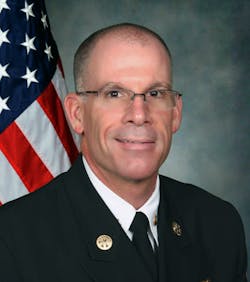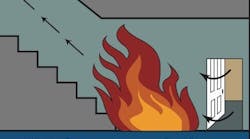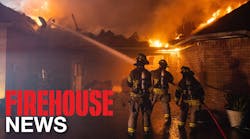We’ve all been there: After countless hours of commitment, research, dedication and hard work, you’re finally ready to save your magnum opus. You promptly hit the save button on your computer and the ever-familiar hourglass or rainbow wheel appears. Acknowledging the comprehensive nature of your work and the voluminous dissertation you’ve composed, you don’t initially react to the repetitive action of the hourglass filling or the spinning wheel. Then reality sets in: Your system has locked up and it is at a complete standstill. What to do?
In the computer world, we know the only real option is to reboot and reload the operating system. Computer gurus will tell you that the most common reason for a reboot is because the installation of new software or hardware requires it, or because applications are not responding for some reason.
As we begin the New Year, I challenge you to ask yourself: Is it time for you, me, the American fire service to consider a “system reboot”?
As I write this editorial, tens of thousands of acres are ablaze in California on the heels of hundreds, if not thousands, of citizens (and firefighters) still working to recover from epic storms that claimed countless lives and inflicted billions in property damage in Texas, Florida and Puerto Rico. Our federal response system, shouldered by firefighters from coast to coast, is being overworked and taxed beyond comprehension.
At a more local level, the aging baby boomers, the opioid crisis and general system abuse has led to unfathomable demands on our medical response capabilities. To counter these demands, many fire departments have chosen to explore alternative response options and, in some cases, to even expand their EMS operations (i.e., community-based paramedicine) to offset the workload on frontline fire resources and budget deficits.
On the fireground, the threat of occupational exposure and disease, cardiac stress and traumatic injury continues to grow due to staffing reductions, the evolving use of synthetics and chemical compositions, and modern building construction. Yet the mere thought of tactical changes or, better yet, the aggressive endorsement of code modifications and passive fire control systems remain to some an unbearable hurdle.
In our volunteer ranks, the void of an exiting generation is being left unfilled by a seemingly disinterested, tech-savvy generation with a fleeting focus on community involvement and the once-cherished camaraderie of the local volunteer fire department.
And in the shark-infested waters of politics, the perception by elected officials that the threat of fire is becoming more distant due to the reduction in annual fire calls and dwindling fire loss figures continues to threaten our federal grant funding programs and unfairly impose a recurrent potential for a sunset clause. Yet firefighters of all ranks refuse to engage in the political arena, and continuously view politics as restricted territory and an unmentionable remedy to the critical issues we face.
While a full-fledged reboot might be a lofty request for any of us to endure, to ignore the changing realities of the environment in which we work is equally unimaginable. The fire problem is ever-evolving, yet the solutions have been longstanding and unmistakable—education, engineering and enforcement.
It’s time we (myself included) face reality and begin to tell our story with quantifiable facts and to educate the citizens and elected officials we serve of the challenges we face. When you build in the wildland/urban interface and fail to accept, endorse and enforce minimum regulations for the safeguarding of life and property from the intrusion of fire, we cannot defend it, save it or otherwise preserve it.
The risk we are willing to endure is calculated and measured. When you build a building and fill it with products that impose undue risk when exposed to fire, fail to comply with national fire codes and compromise our ability to safely respond due to financial constraints and limited resources, we cannot defend it, save it or otherwise preserve it.
While the challenges we face may continue to change, our priorities of life safety, incident mitigation and property preservation have not. As firefighters, we willfully and tirelessly respond and engage in the timbers of our nation’s wildlands, the open plains of our rural communities, the streets of our suburban cities and the skylines of our metros, but we cannot win this battle without an equally tireless focus on public education, defined engineering standards and aggressive enforcement.
Let us never forget that a system reboot doesn’t erase the archives or the lessons of our past; it simply resets the system for operational effectiveness and efficiency for the future.






